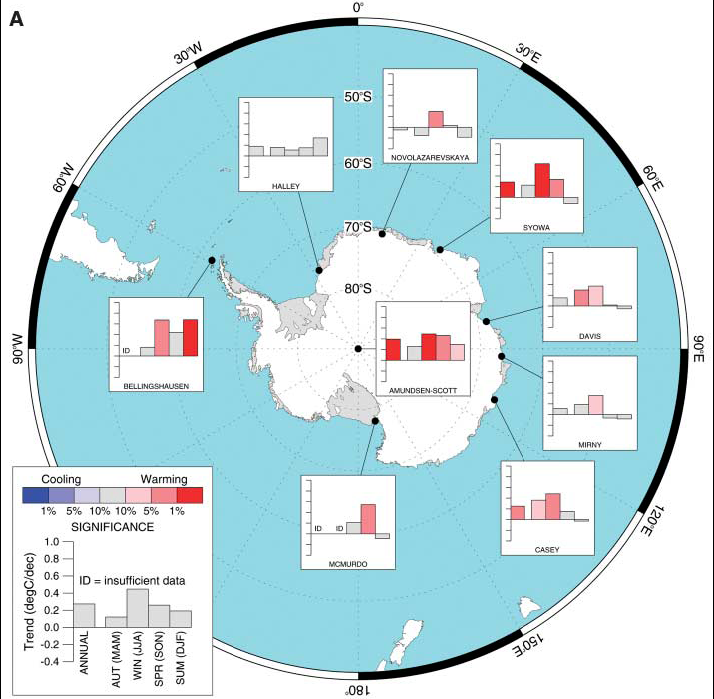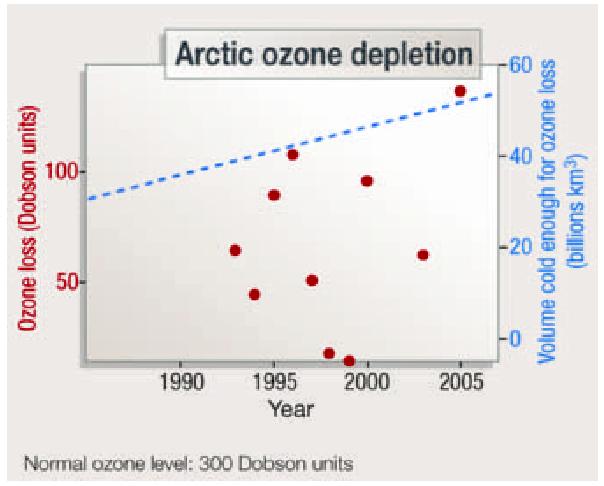 The “iconic” Antarctic temperature trends are the large warming seen on the Antarctic Peninsula, which has had various repercussions including the collapse of several ice shelves (some documented in a previous post). Elsewhere, though, the pattern of surface warming is more complex – trends are smaller, and while more are positive than negative they are generally not significant – see this map. Contrary to what you might have heard, this is in general agreement with model predictions.
The “iconic” Antarctic temperature trends are the large warming seen on the Antarctic Peninsula, which has had various repercussions including the collapse of several ice shelves (some documented in a previous post). Elsewhere, though, the pattern of surface warming is more complex – trends are smaller, and while more are positive than negative they are generally not significant – see this map. Contrary to what you might have heard, this is in general agreement with model predictions.
But meanwhile, there is a record for the upper atmosphere derived from radiosondes, which we have been working on – finding old datasets and digitising them to fill in gaps. What this shows is that around East Antarctica there is a general warming of the troposphere, greatest at around mid-height (at 600 hPa) at 0.7 ºC/decade over the last 30+ years.
In itself, this is an interesting observation. The obvious question is, what does it mean? Is this natural variability; is it a response to global warming, or to changes in ozone; or something else? Ozone is unlikely, because this is winter (which conveniently means that the radiosonde temperature corrections, often a source of potential trouble, are not a problem). Two ways of trying to interpret the record are to see what GCMs run for the same period show; or to look at the re-analyses (essentially, the archived outputs from the weather-prediction models). The latter, of course, incorporate many of the radiosonde observations that we are using, and so don’t count as independant. Despite this, the ECMWF re-analyses show *greater* trends than we see in the observations; and a maximum trend over West Antarctica (which has no radisonde stations to allow us to verify this). A climate model (HadCM3, with an ensemble of four members) shows similar patterns to the observations, but this time too little warming; and a good deal of variation between the ensemble members. So neither of these is helps much with the interpretation.
So we are currently left with an open question; hopefully, this will stimulate us and other researchers to explain it in the future.
[Quick addendum: the paper itself is available via this.]


